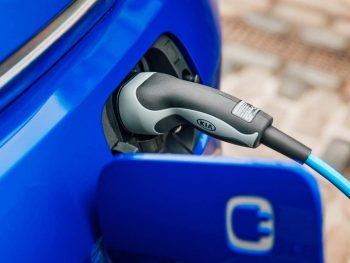UK new car sales hit worst level since 1970
The UK’s new car sector has recorded its worst start to a year since 1970; a direct result of the lockdown and the closure of showrooms.

Combined, BEVs and plug-in hybrid vehicles (PHEVs) accounted for 13.7% of registrations in January 2021; compared to 12% for diesel
Just 90,249 new cars were registered in January – down 39.5% or 59,030 registrations on the same month in 2020, and reinforcing that showrooms need to open as soon as it’s safe to do so.
Demand was down for both private buyers (38.5%) and large fleets (39.7%); just 51,002 registrations were recorded for the latter compared to 84,364 in January last year, according to the figures from the Society of Motor Manufacturers and Traders (SMMT).
Registrations to the Business category for sub-25 fleets fell even sharper and were down 56.0%.
With lockdown restrictions in place until March – the most important month of the year for the sector – the SMMT noted that the industry will face a challenging year. It’s already downgraded its 2021 forecast to below 1.9 million new car registrations from its previous prediction of more than two million units. This would be up 15.7% on 2020 but still very subdued in historical terms; in 2019, the 10-year average total stood at 2.3 million.
There were some positive notes though. Uptake of battery electric vehicles (BEV) grew by 54.4% to 6,260 units – equating to 2,206 extra registrations. Plug-in hybrids (PHEVs) were up 28.0% to 6,124 units – almost exactly the same total as BEVs. Combined, BEVs and plug-in hybrid vehicles (PHEVs) accounted for 13.7% of registrations.
The rise in BEVs and PHEVs means these powertrain types are now predicted to grow their combined market share to more than one in seven, from just over one in 10 new cars in 2020.
In contrast, petrol and diesel cars registrations both saw huge falls; down by 62.1% and 50.6% respectively. Hybrids also declined; down 23.9% to 6,826 units.
More positive news was in the SMMT’s publication of average new car emissions figures for 2020, with the largest-ever fall in CO2 recorded. Spurred on by increased uptake of BEV, PHEV and hybrid electric vehicles (HEVs), which accounted for almost one in six new car registrations last year, average vehicle CO2 dropped to 112.8g/km – a reduction of 11.8% compared to 2019 and 37.7% compared to 2000.
However, with the industry required to achieve a UK-only CO2 fleet average target of 95g/km this year or face severe penalties, the SMMT said that far greater uptake of low- and zero-emission cars is needed. It also said this underscores the need to get showrooms open as soon as Britain emerges from lockdown, so they can generate the demand required to reach the country’s green goals.
Mike Hawes, SMMT chief executive, commented: “Following a £20.4bn loss of revenue last year, the auto industry faces a difficult start to 2021. The necessary lockdown will challenge society, the economy and our industry’s ability to move quickly towards our ambitious environmental goals. Lifting the shutters will secure jobs, stimulate the essential demand that supports our manufacturing, and will enable us to forge ahead on the Road to Zero. Every day that showrooms can safely open will matter, especially with the critical month of March looming.”
Michael Woodward, UK automotive lead at Deloitte, said that whilst there is considerable uncertainty within the industry, early indications point towards a recovery in the second half of the year once lockdown restrictions have eased.
“The extension of some major government and private sector income-support measures, such as the furlough scheme and payment holidays on loans, mortgages and credit cards, has boosted consumer confidence in personal finances. Increased personal savings, as a result of fewer opportunities to spend, also point to favourable conditions for renewed consumer activity which could unleash pent-up demand.
“Year-on-year sales results are typically a marker of performance but, with sales at record lows throughout 2020, growth is inevitable. Understanding the context of this will be key to gauging the health of the industry in 2021.”
However, Woodward said the path to recovery for manufacturers is less clear.
“Last year, car production in the UK fell by a third, slumping to the lowest level since 1984.
“This output decline has been compounded so far this year by supply chains and a shortage of semi-conductors, forcing some factories to temporarily halt production. With around 3,500 chips in a hybrid EV, compared to about 1,300 in a normal petrol or diesel vehicle, carmakers have been caught out by the growth in demand for EVs alongside electrical items, like tablets. For some manufacturers, this current shortage of chips means production plans may need to pivot.”

